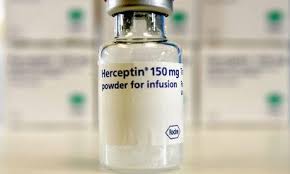FDA approves Mylan/Biocon Herceptin biosimilar

The FDA has approved Mylan and Biocon’s biosimilar of Roche’s Herceptin (trastuzumab) breast cancer drug after a delay because of manufacturing issues.
The FDA had previously rejected the biosimilar because of issues at Biocon’s manufacturing site in Bangalore, India.
Biosimilars are set to save healthcare systems across the world billions of dollars, though originator companies are often still doing everything in their power to delay their arrival.
After its inspectors gave the factory a clean bill of health last month, the FDA has acted quickly to approve the cheaper copycat of Roche’s blockbuster.
Herceptin’s US patent does not expire until 2019, but Roche, Mylan and Biocon earlier this year agreed a licensing deal to save themselves the expense of a lengthy court battle, covering all markets around the world except Japan, Brazil and Monaco.
Amgen and Allergan have a Herceptin biosimilar under review in the US, with a decision due halfway through next year.
Branded as Ogivri, Mylan and Biocon’s biosimilar has been approved for indications included in the label of the reference product, including HER2-overexpressing breast cancer and metastatic stomach cancer.
Total worldwide sales of Herceptin approached $7 billion last year, and around $2.5 billion of that was in the US market.
Late to the party in Europe
Biocon and Mylan have also refiled the biosimilar with the European Medicines Agency after withdrawing the application because of the manufacturing problems.
But this means that rival Samsung Bioepis will have an advantage after beating its rivals to the approval finishing line in Europe, where Herceptin has been off-patent for more than three years.
Celltrion’s Herceptin biosimilar is also nearing the end of its review in Europe after a filing just over a year ago. Allergan and Amgen have also said they plan to file their Herceptin biosimilar in the EU late this year.
EU reviews usually take more than a year from filing to market authorisation, giving Samsung Bioepis a significant head start over Biocon.
According to press reports, Biocon has now set up a new subsidiary that will deal with all of its biosimilars, including monoclonal antibodies, recombinant insulins, and novel biologics.











